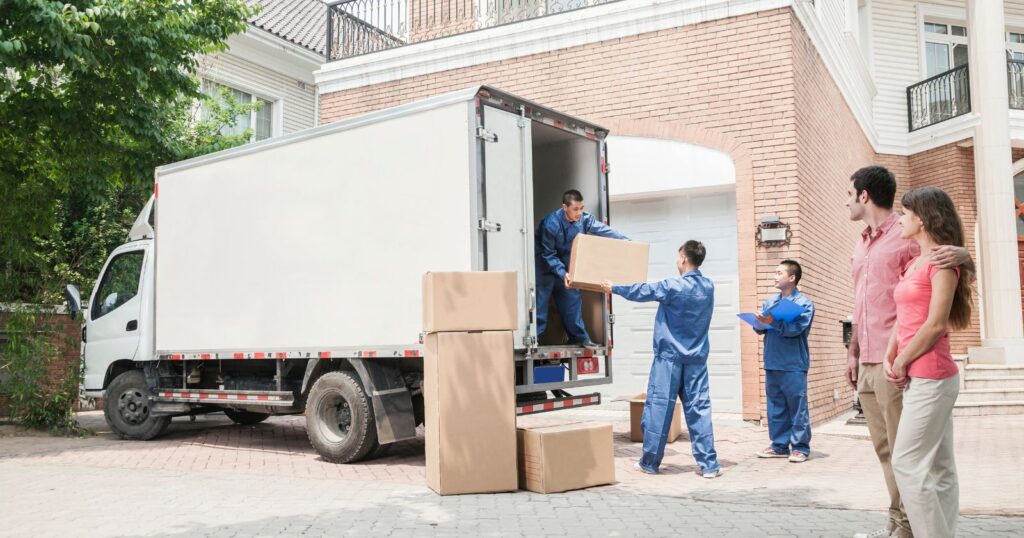Do You Tip Movers?
Table of contents

When facing the daunting task of relocating, one question often arises: Do you tip movers? Indeed, moving is among the most challenging experiences one can encounter, with a myriad of logistical considerations and emotional upheavals. The professionals who assist in easing this transition play a pivotal role in ensuring a smooth process, making the act of tipping an essential gesture of gratitude. This comprehensive guide aims to shed light on the proper tipping etiquette within the moving industry, offering insights to help you adequately express your appreciation for their hard work and commitment.
Understanding Tipping Etiquette for Movers
Tipping movers is not a requirement, but it is a gesture of gratitude for a job well done. The amount you decide to tip should reflect the quality of service received, the move’s complexity, and the team’s overall performance. A general guideline suggests offering 5% to 20% of the total moving cost as a tip, but this can vary based on several factors, including the move’s duration and the level of service provided.

How to Calculate Your Tip
Figuring out the right amount to tip your movers doesn’t have to be a complex equation. Here are some straightforward methods to consider:
- A flat rate per mover: This approach works well for shorter moves, where each mover is given a predetermined amount.
- An hourly tip: For longer moves, consider tipping each mover a specific amount for every hour worked.
- A percentage of the total cost: Allocating 5% to 20% of the total moving bill as a tip and dividing it among the movers is another common practice.
- Assess the move’s complexity: If your move involves navigating narrow staircases, heavy or fragile items, or adverse weather conditions, consider increasing the tip as a gesture of appreciation for the extra challenges faced by the movers.
- Quality of service: Exceptional service, such as meticulous care of belongings, friendly interaction, and efficiency, warrants a higher tip.
- Individual contributions: While a collective tip is standard, you might also consider recognizing individual movers who go above and beyond with a personal tip.
Remember, while tipping is a gesture of gratitude, it should also reflect the quality of service received. A successful move with minimal stress and no damage to your belongings is a testament to the movers’ skill and effort, deserving of recognition.
When and How to Tip Movers

Tip movers at the move’s end to evaluate their service fully. This method lets you tip for their actual performance. Handing tips to each mover directly shows personal gratitude, making them feel valued.
Prepare tips beforehand, using envelopes for a flat rate or based on hours worked. This avoids last-minute awkwardness. A heartfelt thank you with the tip boosts movers’ morale, acknowledging their effort and impact.
Tipping Recommendations
| Move Duration | Suggested Tip Per Mover |
|---|---|
| 4 hours or less | $20 |
| 8 hours | $40 |
| 12+ hours | $50 – $60 |
The Impact of Tipping on Movers

Tipping movers transcends the mere compensation for physical exertion; it serves as a profound gesture of gratitude for their instrumental role in navigating you through a pivotal life change. This financial token symbolizes your recognition of their hard work, professionalism, and the meticulous attention they’ve dedicated to safeguarding your belongings throughout the move.
A generous tip not only rewards their physical labor but also acknowledges the emotional and logistical support provided during what is often a stressful time. It communicates your appreciation for their commitment to service excellence and the respect they’ve shown for your personal items, making it a meaningful part of the moving experience.
Why Tipping Matters
- Boosts morale: The physical toll of moving cannot be overstated, and a tip acts as a powerful morale booster, directly rewarding the movers’ hard work and stamina. It’s a clear signal of your appreciation for their effort and dedication to safely transporting your belongings.
- Acknowledges exceptional service: Beyond the physical labor, a tip serves as a heartfelt thank you for any extra care and attention the movers provide. Whether it’s handling fragile items with extra caution or accommodating last-minute changes, tipping is a tangible way to acknowledge their commitment to excellence.
- Fosters a positive relationship: Tipping also helps in building a positive rapport with the moving crew. This goodwill can be especially beneficial for any future moves or if any issues need to be addressed post-move. It shows that you value and respect their service, encouraging a mutually respectful relationship.
- Encourages professional behavior: Knowing that their hard work is recognized and rewarded can motivate movers to maintain high standards of professionalism and care in their work. This not only benefits you but also helps uplift the overall service quality within the moving industry.
FAQs on Tipping Movers

- Do I need to tip if the moving service was subpar?
Tipping reflects service quality. If the service was unsatisfactory, you’re not obligated to tip. - Can I tip with food or drinks instead of money?
While refreshments are appreciated, a monetary tip is preferred to compensate movers for their effort. - Is it okay to tip one mover more than another?
If one mover’s performance stood out, it’s acceptable to tip them more. However, do so discreetly to avoid tension among the team.
Navigating the Tipping Process
“Do you tip movers?” Yes, but the amount is at your discretion. Remember, tipping is not just for the physical labor but also for the movers’ commitment to safely transporting your valuables. By following this guide, you ensure your moving team feels valued and motivated, making your move a positive experience for everyone involved.







